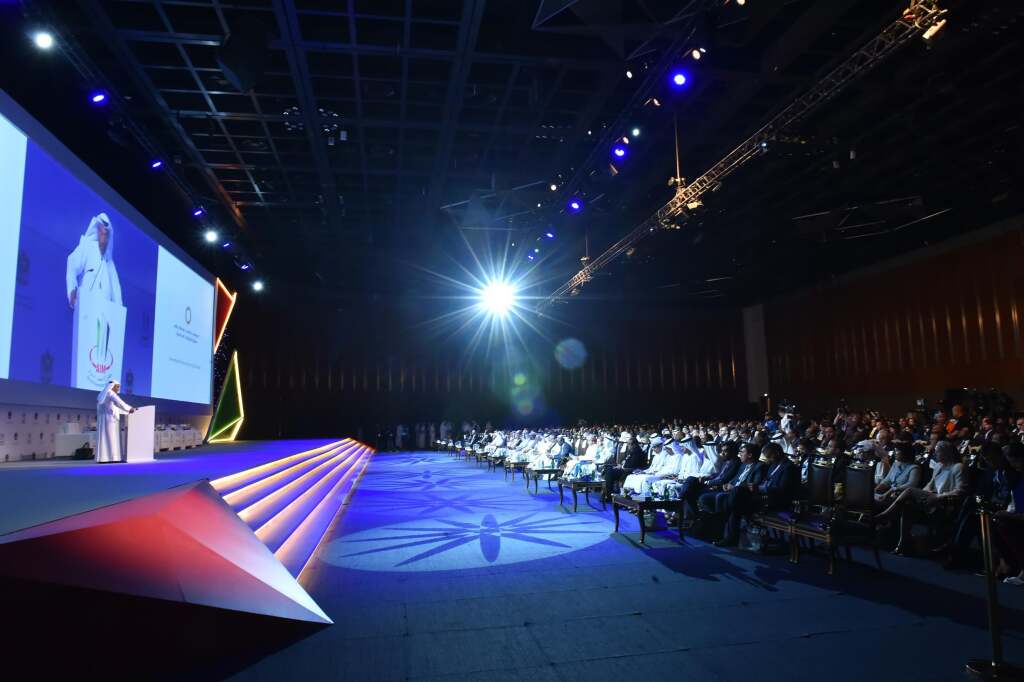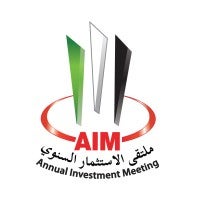
Just as it was the origin of humanity, Africa is the future of humanity. The economy of the continent is predicted to grow to $29trn dollars by 2050, its middle class is rapidly expanding to create one of the largest consumer markets in the world, and Africa is a fast adopter of new technologies. All of this means that Africa is on track to become one of the biggest and most forward-looking economies in the world. Also, as the continent most affected by climate change, Africa is at the centre of the global response to this crisis.
To address this, the high-profile Annual Investment Meeting (AIM) will have Africa as one of its key focus regions in its edition this year.
“AIM brings together over 12,000 participants, governments and experts from over 170 countries who want to work together to realise a better future through foreign direct investment,” said Dawood Al Shezawi, President of AIM.
Taking place in Abu Dhabi in the United Arab Emirates, host of the Cop28 climate negotiations in November, AIM will look at investment opportunities globally, and within this is Africa. The drive to create a sustainable economy of growth, diversity and prosperity is clear from the level of engagement from over 30 African nations flying to the AIM Congress.
“Many countries, particularly African states, felt the Cop27 negotiations fell short of their ambition and they want to talk about serious investment in their green economic future,” said Al Shezawi. AIM will be providing the forum to discuss the results of Cop27 and look ahead to Cop28, he explained. The meeting is structured to allow for wide-ranging discussions with the aim of fostering innovation, growing African economies sustainably, and supporting emerging markets. The sessions range from discussions on smart cities, to supporting start-ups and SMEs, to the role of innovation.
“The smart cities model is a particularly powerful way to look at the whole ecosystem of environmental, economic and social sustainability,” said Al Shezawi. Planning and building these cities requires proper and necessary green infrastructure, housing, jobs, leisure and education. Al Shezawi is keen to see the model exported globally as a response to the environmental crisis.
“This year at AIM we expect there to be hundreds of investment promotion agencies from across the world, including thirty to forty African countries attending and looking for investment,” said Al Shezawi. China has long recognised the value of investing in African countries, and is one of its largest lenders, investors and trading partners. However, many African countries are still dealing with the legacy of debt from the Covid-19 pandemic, with 22 countries at risk of or experiencing “debt distress”. This means developing that pool of investors is crucial to ensuring the continued growth and success of their economies, and playing their role in tackling climate change.
[See also: Emmanuel Macron is right to want to return African art to Africa]

The opportunities for investment in solar and renewable energy, for example, are transformative – but only 2 per cent of global investment in renewables was in Africa in 2021 and less than 3 per cent of renewables jobs. The African continent could generate 7,900 gigawatts from solar power alone, with hundreds more gigawatts coming from wind, hydropower and geothermal energy. The jobs that would be generated from these projects and other investments in digital could empower a growing population of African young people, providing training and skills in innovative industries with a long-term future. “It is our ambition that partnerships between investors and governments can deliver this transformation towards a sustainable economy and the empowerment of young people,” said Al Shezawi.
African countries can also take the leap forward into a renewable future because they do not have to deal with the extensive fossil fuel infrastructure and dependence that Western economies are still having to unpick. This is something they have already accomplished with communications technology to establish innovative digital and mobile services that mean, for example, digital payments are 87 per cent of GDP in Kenya and 82 per cent in Ghana and internet speeds in the continent are, on average, doubling every 18 months. “The continent of Africa has already shown it has the vision and ambition to deliver innovation and growth, all it needs are investment partners who can match it,” said Al Shezawi.
The need is pressing. The island state of Mauritius in East Africa is one of the countries most vulnerable to climate change. In recent years the government has had to construct huge sea barriers in order to protect villages and communities from sea-level rises. Its coasts and coral reefs are degrading due to climate change. The country has set itself ambitious climate targets, but still needs billions of dollars in financing to achieve these, let alone to extend and expand that ambition. Across the continent are many more examples of innovative projects and plans that need foreign direct investment.
The evidence shows that investment in sustainable solutions to the climate crisis have a strong rate of return, all it takes is for people of common cause and vision to come together.
“For too long Africa has been viewed as a problem, whereas it is actually the solution,” said Al Shezawi. A green tech revolution driven by innovation and forward-looking investors can bring about this radical transformation: advancing economies, across the continent, leading on tackling climate change.
The 12th Annual Investment Meeting (AIM) will be held in Abu Dhabi from 8 to 10 May, 2023.
[See also: Is the future of Christianity African?]

